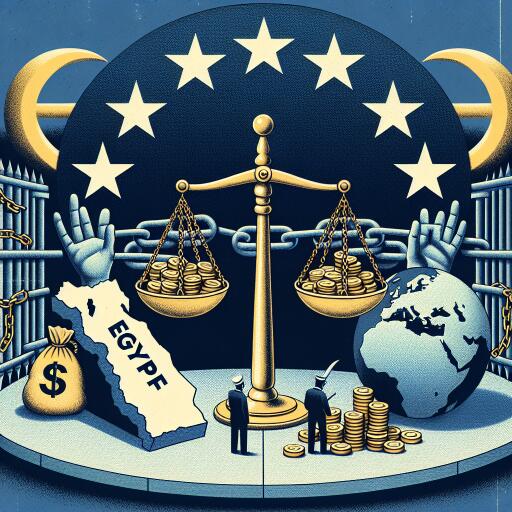EU Leaders Accused of ‘Rewarding Repression’ with €7.4bn Egypt Deal
In a bold move that has stirred controversy, European Union leaders are on the verge of finalizing a substantial €7.4 billion agreement with Egypt, a development that comes amid sharp criticisms from European Parliament members. Critics argue that this deal represents a significant instance of the EU’s financial engagement with regimes accused of authoritarian practices, particularly following a recent €150 million migration and economic agreement with Tunisia.
The strategic partnership between the EU and Egypt is primarily aimed at mitigating the flow of refugees across the Mediterranean. However, it’s the magnitude of the funds involved that has drawn the most attention, with the package intended to bolster economic reforms in Egypt through €5 billion in soft loans, including a €1 billion allocation as urgent aid for 2024.
This agreement is anticipated to foster collaboration across various sectors, including renewable energy, trade, and security. It promises a blend of grants, loans, and other financial support over the forthcoming three years to alleviate the economic challenges faced by Egypt. The North African nation, home to over 106 million people, has been grappling with economic difficulties and a severe foreign currency shortage, conditions that have propelled many of its citizens to seek life elsewhere.
Gathering in Egypt to seal this deal were prominent European leaders, including European Commission President Ursula von der Leyen, Italian Prime Minister Giorgia Meloni, Belgian Prime Minister Alexander De Croo, and Greek Prime Minister Kyriakos Mitsotakis. Their presence underscores the significant interest and concerns among EU states regarding the potential for another refugee crisis emanating from regions close to Egypt, which currently shelters roughly 450,000 refugees from Sudan, as per recent UNHCR data.
There’s a notable focus within the deal on enhancing border security with neighboring Sudan and Libya and supporting Egypt as it hosts a substantial number of refugees. Additionally, part of the funding is earmarked for economic stimulus initiatives aimed at spurring investment and business within the Egyptian economy.
However, the agreement has not been met with unanimous acclaim. Human Rights Watch has criticized the EU’s decision, suggesting it effectively rewards President Abdel Fatah al-Sisi’s governmental regime, which has been characterized by its stringent control and suppression of dissent since coming to power in 2013. The organization highlighted the detention of political critics, curbs on media freedom, and the squashing of civil society activities under Sisi’s administration.
In response to the backlash, particularly from MEPs who labeled the deal as a means of “bankrolling dictators,” the EU defended its approach. The Union emphasized its commitment to fostering democracy and human rights through partnerships, stating that constructive engagement was preferable to severing ties. A draft of the joint declaration on the deal underscores pledges to democracy, human rights, gender equality, and equal opportunities. This document outlines both parties’ readiness to bolster Egypt’s national strategy for human rights, signaling the EU’s acknowledgment of Egypt’s critical role in maintaining security and stability within the Mediterranean and African regions.
Despite the criticisms, the financial package and strategic partnership indicate a significant investment in a “strategic and comprehensive partnership,” revealing the EU’s recognition of Egypt as a key ally in navigating the complex geopolitics and socio-economic challenges of the Mediterranean and adjacent areas. This deal, grounded in a commitment to the values laid out in the United Nations charter, marks yet another chapter in the multifaceted relationship between the European Union and Egypt.
